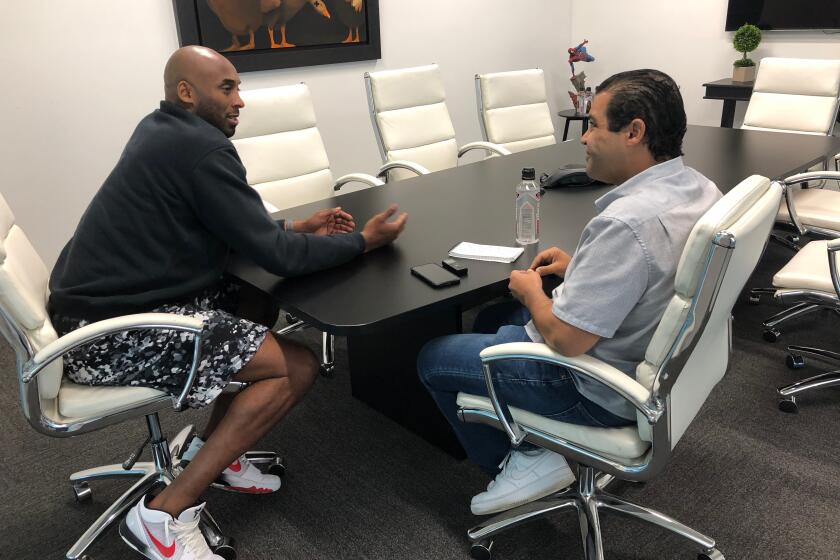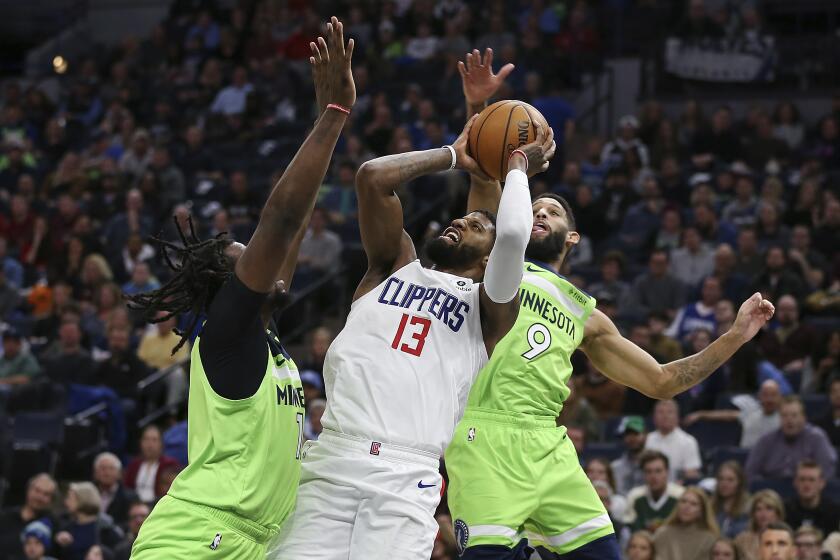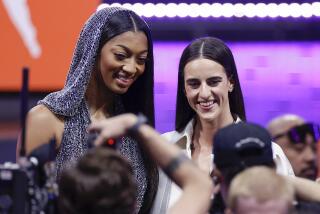China continues to limit NBA’s exposure to fans months after controversy
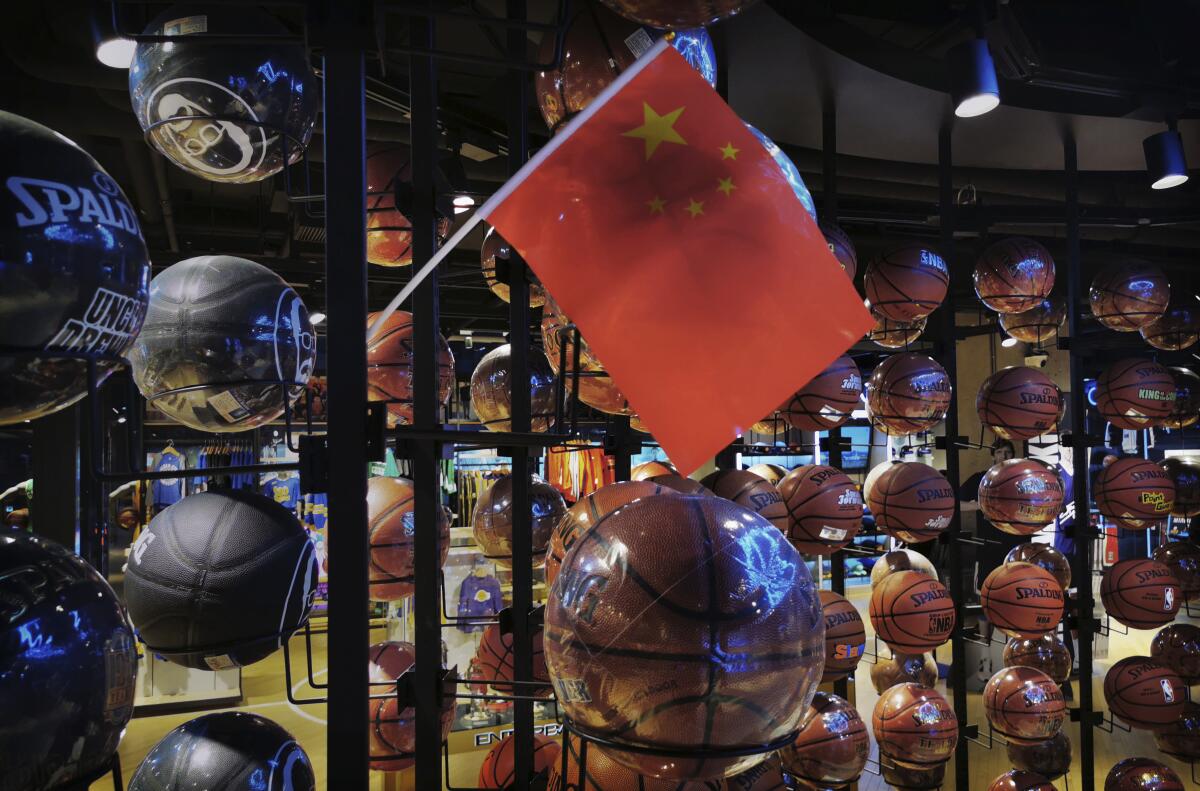
- Share via
In mid-October, nearly two weeks after a tweet from Houston Rockets general manager Daryl Morey sparked an international controversy between China and the NBA, league Commissioner Adam Silver said the financial impact was already “substantial.”
With the NBA now more than halfway through its regular season and the 2020 All-Star weekend set to begin Friday in Chicago, it remains unclear how much of the league’s popularity and earning power in China has been lost.
Although the NBA has not given a dollar value for its China losses, the league informed its 30 teams before the Feb. 6 trade deadline that the salary cap would be lowered from a projected $116 million to $115 million.
What is clear is that Chinese NBA fans — a massive and passionate group strategically targeted for the last two decades — have been limited significantly in their opportunities to watch the players and teams they love.
Tencent, the Chinese media giant that is in the last season of an original five-year deal with the NBA for exclusive rights to live stream all NBA games online, used to carry every game as part of a subscription package, which meant that up to 12 games could be shown in a day.
This season, Tencent has cut its NBA subscription offerings, streaming only the one to three games per day for free, the same way it has in past years.
According to an industry official who spoke on the condition of anonymity, viewership of the complimentary offerings is about the same as before Morey tweeted in support of pro-democracy demonstrators in Hong Kong. But those games are rarely interrupted by advertisements, a telling sign that the NBA sponsors in China who announced their decision to suspend contracts have not returned.
Tencent’s business model relied on commercials appearing during games for revenue. Now, only a few sponsors are left. One of them is a condom brand named Jissbon.
Without sponsors, Tencent decided to show promotional videos of its other services during commercial breaks of NBA games.
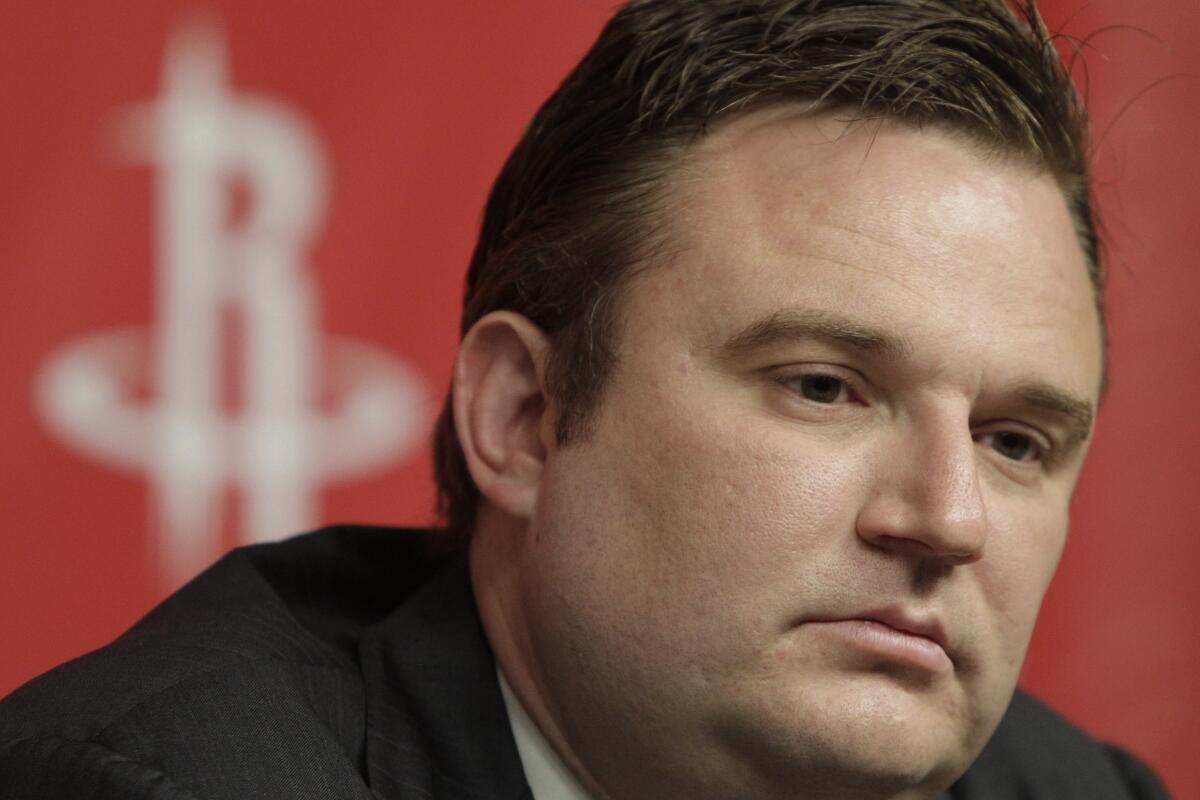
Tencent isn’t the only Chinese source of NBA content to turn off the spigot. Government-run China Central Television used to show NBA games three days a week, with one to two games per day. But CCTV stopped broadcasting them in October, and it has not resumed the service.
China’s icy treatment of the NBA would have come as a shock last July, when Tencent and the league agreed to a five-year extension through the 2024-25 season worth a reported $1.5 billion.
Last season, 490 million fans in China watched the NBA on Tencent, nearly three times the number who watched during the 2014-15 season. Twenty-one million fans in China tuned in for the decisive Game 6 of the 2019 NBA Finals, making it the most-watched NBA game ever on a digital platform in China. That surpassed the 18.34 million fans who watched in the U.S.
Tencent, though, had to refund many of its subscribers who had paid in October for the NBA package but quickly showed their loyalty to their country over their favorite basketball league.
The new deal between Tencent and the NBA could be in jeopardy, the industry official said, which would be a major blow to both sides.
We talked about basketball, but we also talked about life and his family. He loved spending time with his wife, Vanessa, and their daughters, Natalia, 16, Gianna, 13, Bianka, 3, and Capri, who was born last June.
“We have had a great partnership with Tencent since 2009 and last July announced a five-year expansion,” NBA spokesman Mike Bass said. “Through our expanded partnership, we look forward to continuing to work closely with Tencent to provide their hundreds of millions of daily users with NBA games and content, and deepen our long-standing connection with fans across the country.”
That the controversial tweet — “Fight for freedom, stand with Hong Kong” — came from a high-ranking official with the Rockets only made the scenario more of a nightmare for the NBA. The Rockets drafted Chinese star Yao Ming, the 7-foot-5 center, in 2002, and he quickly turned the existing basketball fandom of the country into Houston supporters.
China’s obsession with the league only grew, thanks in part to investment from Nike to brand American stars in China, including Kobe Bryant. Bryant, who died Jan. 26 in a helicopter crash in Calabasas, helped build Nike’s $6-billion business in China and create a climate in which the NBA could reap the benefits of Chinese fans’ fascination, with rights deals such as the one it recently extended with Tencent.
With the blockage of NBA games from CCTV and Tencent this season, the most ardent Chinese observers have searched out “illegal channels,” such as pirated live streams offered by some sports booking services. When Tencent’s services were available, few bothered to watch the illegal content, which usually is of poorer quality.
Chinese fans of the Rockets appear to have it the worst. In terms of reporting and coverage of NBA games in Chinese media, both the Rockets and Silver were completely blocked from mention. In Tencent’s news stories about NBA games, updates on the Rockets were absent. Although, sometimes, when players were talked about in the context of the MVP race, Rockets all-star guard James Harden would be mentioned, although not prominently.
Lately, it’s been hard to tell how much NBA fervor still exists because the coronavirus outbreak has malls and other public areas shut down, and many are unwilling to leave their homes.
From the NBA’s point of view, it has been business as usual with the Chinese. All the league can do is offer its content and wait for a thaw. Whether or when relations will resume their normal rhythm is out of the NBA’s hands, but it can hope that geopolitical forces come to its rescue.
As NBA All-Star weekend tips off Friday, the newly adopted trade deal between the U.S. and China will go into effect. It is unclear what the effect will be for American companies, but Beijing promised to buy $200-billion worth of U.S. goods and services in the next two years. The deal will halve tariff rates on $120 billion worth of goods.
All the NBA can do is practice patience. If the spigot turns back on soon, it will have an easy theory as to why with the trade deal.
The industry official, though, believes the issue between the NBA and China might only be resolved after each side offers an olive branch to the another.
The Clippers will soon feature a new lineup with Marcus Morris, but on Saturday it was new-look Minnesota that dominated from the start to win 142-115.
More to Read
Go beyond the scoreboard
Get the latest on L.A.'s teams in the daily Sports Report newsletter.
You may occasionally receive promotional content from the Los Angeles Times.
